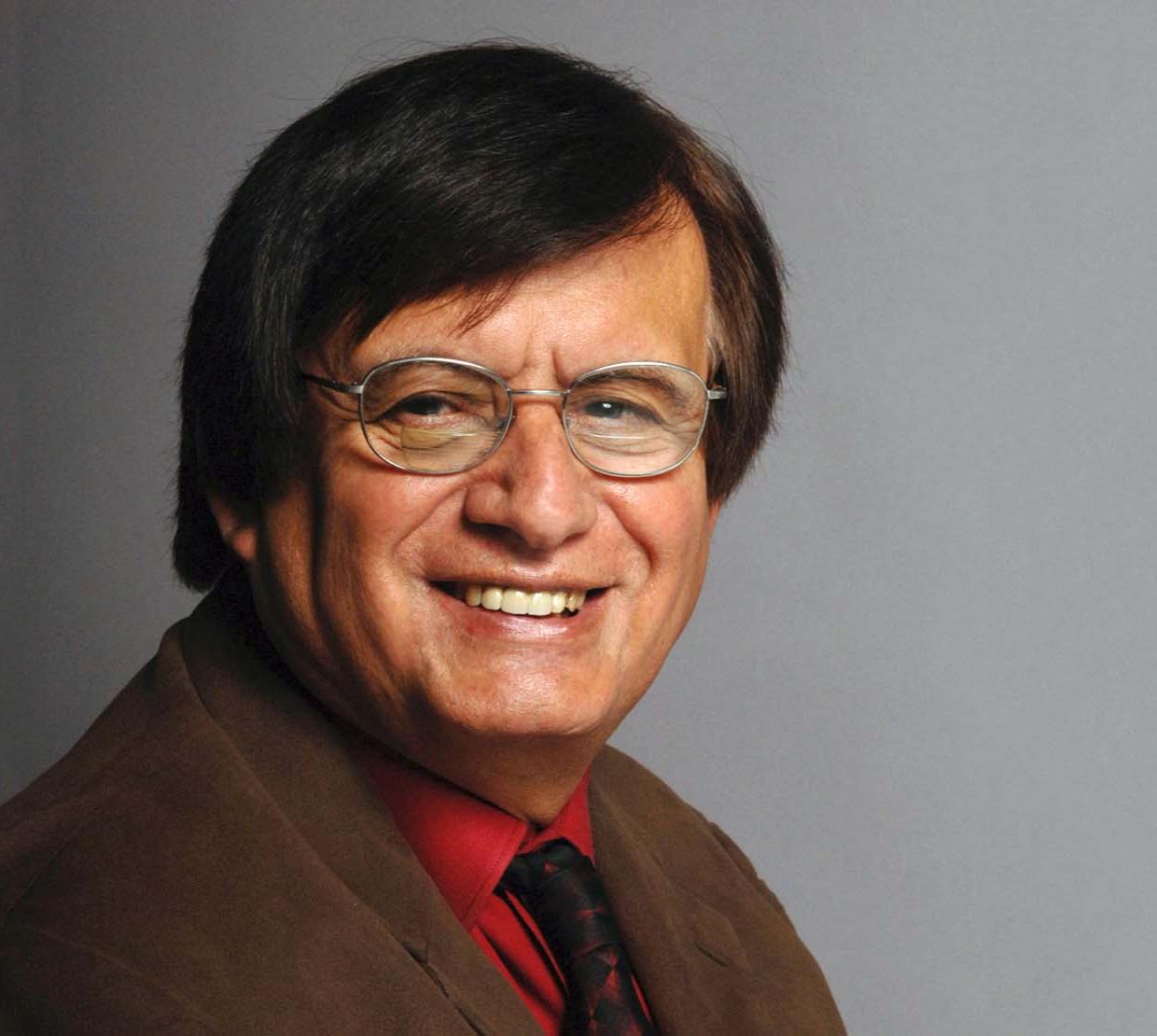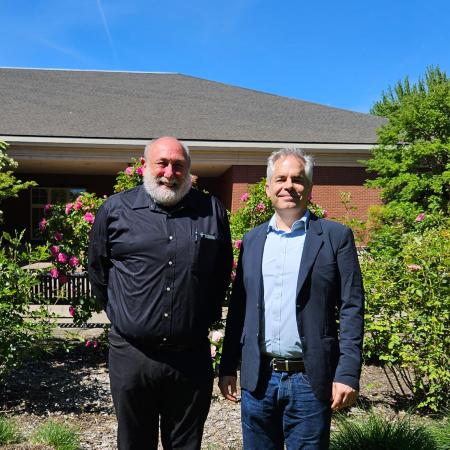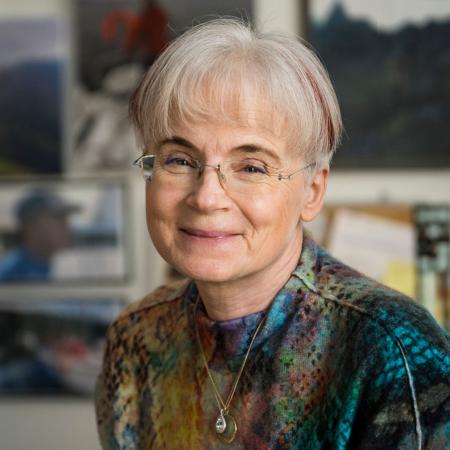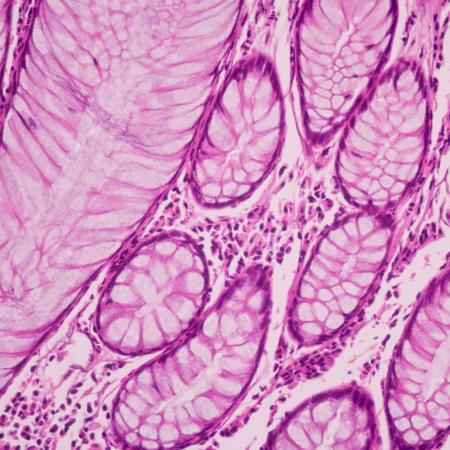The Department of Mathematics held its 31st Annual Lonseth Lecture on Tuesday, May 10th. Prior to the lecture at 3:30 PM, the department celebrated the achievements of undergraduates, graduates, and faculty with the annual Mathematics awards ceremony.
31st Annual Lonseth Lecture
Dr. Richard Tapia, professor in the Department of Computational and Applied Mathematics at Rice University, presented his talk, "The Remarkable Journey of Isoperimetric Problem: From Euler to Steiner to Weierstrass,” an overview of the history of the impactful isoperimetric problem. He will identify three distinct classes of solution approaches that have been used throughout history: the Cartesian coordinate representation approach of Euler, the synthetic geometry approach of Steiner, and the parametric representation approach of Weierstrass. Euler incorrectly believed that he had established sufficiency, when in reality he had not even established the necessity that he has been credited with by mathematical historians. This failure led Steiner in 1838 to propose his approach which gave only necessity and not sufficiency as he believed.The Steiner path was completed by Lawlor in 1998. Euler’s and Steiner’s failures led Weierstrass in 1879 to propose his approach, which did indeed lead to sufficiency but was excessively long. The Weierstrass approach was completed in 1934 by Littlewood, Hardy, and Polya. Prof. Tapia presented a completion of Euler’s approach in a surprisingly elementary proof.
Professor Tapia is a 2010 awardee of the National Medal of Science, the highest honor bestowed by the United States government on scientists and engineers. He holds the rank of University Professor, the university’s highest academic title awarded to only seven individuals in the university’s history. Among his numerous other honors is the National Science Board’s Vannevar Bush Award and election to the National Academy of Engineering, the first Hispanic to receive these honors. He holds honorary doctorates from Carnegie Mellon University, Colorado School of Mines, University of Nevada, and Claremont Graduate University. Two professional conferences have been named in his honor: the Richard Tapia Celebration of Diversity in Computing Conference and the Blackwell-Tapia Mathematics Conference. Tapia served on the National Science Board from 1996-2002. Because of his leadership Rice University is recognized as a national leader in the preparation of women and underrepresented minority doctoral degree recipients in science, engineering, and mathematics.
The Lonseth lecture series was established in 1985 to honor Arvid T. Lonseth, Professor Emeritus and former chair of the OSU Mathematics Department. Dr. Lonseth was a superb and devoted scholar and teacher of mathematics. His research was principally in integral equations, the calculus of variations, and computational methods. He joined the OSU Mathematics Department in 1948 at the invitation of department chair W. E. Milne and was promoted to full professor three years later. During his tenure as department chair from 1954 to 1968, Dr. Lonseth set the department firmly and successfully on its present course: a department with wide expertise, with a special interest in mathematics of the world around us, and with a dedication to undergraduate education. He retired in 1978, but his interest in teaching and learning never waned. Dr. Lonseth attended virtually all of the Lonseth lectures until his death in April 2002. The lecture series is a continuing testimony to Arvid's strong interest and commitment to the mathematical education of students, especially undergraduates.
See also this article in iMPACT about the Lonseth Lecture and Dr. Arvid Lonseth.
See this article in iMPACT about Dr. Tapia's public talk "Using Mathematics to Enhance My Personal Life," which took place May 11th.
See also this article in iMPACT on Dr. Tapia's invitation-only talk, "Building a Culture of Diversity in Higher Education: Obstacles and Successes."
Department of Mathematics Awards
The Department of Mathematics awards ceremony featured awards to undergraduate and graduate students as well as faculty. Undergraduate and graduate awards are presented each year to students who demonstrate outstanding work and dedication, while graduate and faculty awards recognize excellence in teaching and research. The award recipients are listed below.
2016 Gary L. Musser Award
In recognition of outstanding mathematical achievement for a prospective elementary or middle school teacher
- Andrea Kenagy
2016 Edward H. Stockwell Award for excellence in mathematics
For outstanding work in mathematics
- Magnum Forkner
- Michael Lowell
- Jeremy Rath
2016 Harry and Molly Goheen Memorial Scholarship
Awarded to an outstanding junior or senior majoring in mathematics or computer science who expresses the desire to work in the field of mathematics or computer science following graduation. Awarded in alternate years by the Departments of Mathematics and Computer Science.
- Finn Womack
2016 WIC Award
For outstanding mathematical writing in a writing intensive course
- Samuel Kowash
2016 Botand Gabor Eross Math Memorial Scholarship
For outstanding work in mathematics
- Zachary Barry
- Paul Duffin
- Patrick Flynn
- Dillon Rhoades
- Bradley Vomocil
2016 Joel Davis Award for excellence in mathematics
For outstanding work in mathematics.
- Monica Steele
2016 Joel Davis Faculty Excellence Award
For demonstrated excellence in teaching and research focused on Numerical Analysis
- Adel Faridani
- Malgorzata Peszynska
2016 Actuarial Science Award
For excellence in mathematics
- Steven Hills
- Thomas Cramer
- Daniel Green
- Alejandra Mendoza
2016 William F. Burger Graduate Teaching Award
For outstanding mathematics teaching
- Charles Camacho
- Claire Gibbons
- Jetjaroen Klangwang
2016 Graduate Student Academic Achievement Award
For academic excellence in mathematics
- Dwight Holland
2016 Graduate Student Faculty Award
For excellence in teaching and mentoring graduate students
- Malgorzata Peszynska




